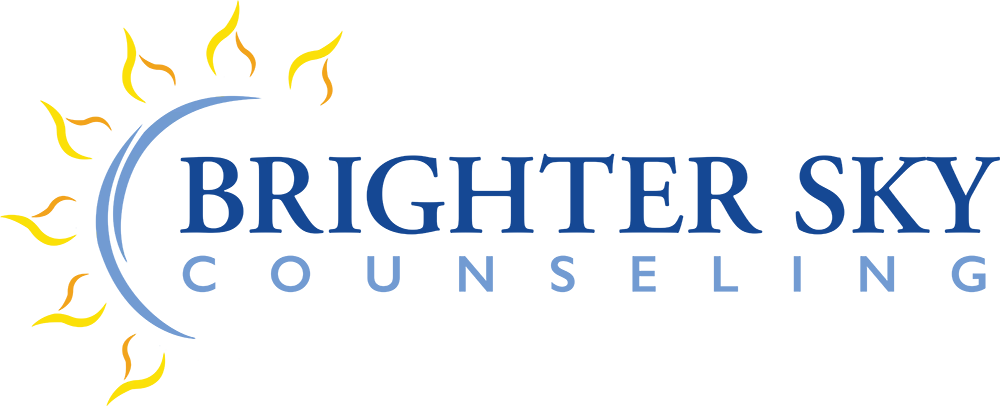Building Your Stress Resilience: 6 Evidence-Based Techniques to Try This Stress Awareness Month
Erin Bratsky, MSW, LCPC
Stress touches every life. Whether it’s the everyday rush, a life change, or the weight of ongoing responsibilities, our mental and physical wellbeing feel the impact. At Brighter Sky Counseling, we believe that managing stress is not about eliminating every tension or worry. It is about building the capacity to respond, recover, and thrive.
In recognition of Stress Awareness Month, we are sharing six evidence based stress management techniques that can fit into real life right here in Montana. These strategies are backed by research and designed to help you create more space for calm, clarity, and connection.
1. Mindfulness and Meditation
Mindfulness invites you to be present with your thoughts, feelings, and body sensations with gentle curiosity rather than judgment. Practicing mindfulness and meditation has been shown to reduce stress, anxiety, and depression in people from many walks of life.
Try this: Choose five minutes in the morning or evening. Find a quiet place, soften your gaze, and focus on your breath. When your mind wanders, gently bring your attention back. When you finish, take a moment to notice how you feel.
2. Relaxation through Breathing and Body Awareness
Our bodies often hold on to stress. You might notice it as tight shoulders, clenched jaws, or shallow breathing. Techniques such as slow breathing, body scans, and progressive muscle relaxation help calm the nervous system and bring the body back to balance.
Try this: Sit or lie comfortably. Inhale slowly for a count of four, hold for one count, and exhale for six. Repeat several times. Then scan your body from your feet to your head, noticing any tension and inviting those muscles to release.
3. Movement and Physical Activity
Moving your body is one of the simplest and most effective ways to manage stress. Whether it is a walk outside, gentle stretching, or a yoga class, regular movement supports both your physical and emotional health.
Try this: Schedule 15 to 20 minutes this week for movement that feels good to you. Go for a walk, stretch while listening to music, or follow a short online workout. Pay attention to how your body feels afterward and notice any sense of release or renewed energy.
4. Sleep and Restorative Habits
When sleep is disrupted by stress, our ability to cope weakens. Consistent, high quality rest helps restore the mind and body and increases resilience to daily challenges.
Try this: Choose a consistent time to go to bed and wake up, even on weekends. Create a simple wind down routine by dimming lights, turning off screens 30 to 60 minutes before bed, and doing something relaxing like reading or stretching. Notice how better rest influences your energy and mood the next day.
5. Thought Patterns and Cognitive Awareness
Stress often grows when our thoughts become filled with worry or self criticism. Learning to recognize and gently challenge these patterns can create space for healthier perspectives and calmer responses.
Try this: When you feel stressed, ask yourself, “What am I telling myself right now?” Notice a thought such as “I have to handle everything perfectly.” Then question it. Is it true? What might be a more balanced way to see this? Try saying, “I am doing my best with what I have today.” Reflect on how that small shift affects your emotions or choices.
6. Connection and Support
Stress can make us pull away from others when what we often need most is connection. Relationships with friends, family, and community remind us that we are not alone and can help us process and release stress more effectively.
Try this: Reach out to someone this week. Schedule a coffee, send a message, or attend a local community event. Connection does not have to mean fixing problems. Sometimes simply being seen and heard lightens the load.
Start With One Step
You do not have to tackle everything at once. Choose one of these stress management techniques and practice it consistently for the next seven days. At the end of the week, ask yourself what changed and what you learned about your stress patterns.
Stress is part of life, but it does not have to take over your life. With consistent practice and supportive relationships, it is possible to find greater balance and calm. If you are feeling overwhelmed, Brighter Sky Counseling is here to help. Together we can build your tools for resilience and healing.
About Brighter Sky Counseling
Brighter Sky Counseling, located in Billings, Montana, offers compassionate, evidence informed therapy services for individuals, couples, families, and professionals. Our mission is to reduce the stigma around mental health, support wellness through every stage of life, and equip you with tools for long term thriving.
Photo credit by Francisco Moreno on Unsplash
